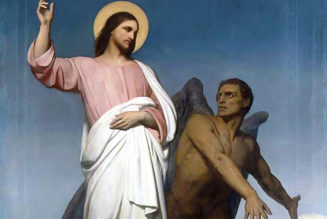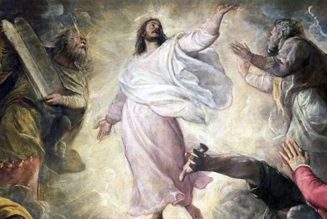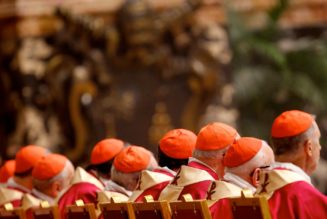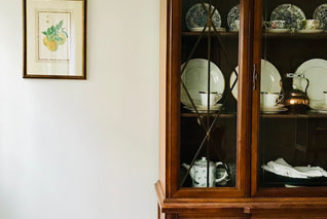
David Deane is Associate Professor of Theology at the Atlantic School of Theology (Halifax, Nova Scotia). He received his doctorate from Trinity College (University of Dublin) and has taught at Colorado State University. He is the author of Nietzsche and Theology: Nietzschean Thought in Christological Anthropology (Ashgate Publishing, 2007) and, with Sr. Nuala P. Kenny, Still Unhealed: Treating the Pathology in the Clergy Sexual Abuse Crisis (Novalis, 2019).
His new book, titled The Tyranny of the Banal (Lexington Books/Fortress Academic, 2023) has been described as “exceptional” by John Milbank, “very valuable” by Stephen Bullivant, and a work that “should be on every seminarian’s moral theology reading list” by Tracey Rowland.
Dr. Deane recently corresponded with me about his book and some of the serious challenges faced by Catholics in explaining and living the Catholic Faith in a culture so deeply rooted in secular liberalism.
CWR: Allow me to begin with a “big picture” observation-as-question: Is it fair to say that your book, in key ways, poses the question: “What if we believed and lived as if the Triune God is really true and truly real?” Or, as you put it: “Reality, for catholic Christians, is God…”
Deane: I think that’s exactly right. What if we understood that we accept union with (and infusion by) the Triune God in moral moments? We have largely forgotten the ontology of the moral life and, therefore, struggle to see the moral life the way the Fathers and Doctors of the Church did. We’re enduring the Babylonian captivity of our moral imaginations.
In response, the book attempts to show the horrors of the dominant liberal, secular, logic, and to remind us of what’s happening ontologically in the moral life. Secular, in my usage, refers to an ontology rather than a model of the state. It refers to a model of the real in which God is ontologically absent. This model must be resisted if we’re to understand the moral life in coherently Catholic ways. This is what the book tries to do.
CWR: The grave situation and challenge that you outline in the Introduction is very real: that most people, including a large number of Catholics, do not find Church teaching about morality to be convincing. You note that there are two general responses to this, and that both are seriously flawed. What are those responses and what are the basic problems with them?
Deane: The two responses are: (1) too many think Catholic moral positions on contested topics (abortion, sex, etc.) are “outdated” and inherently unconvincing. Most people who think this simply don’t “get” how Catholic moral reasoning functions and have become ideologically secular. And (2) too many people are “white-knuckle” Catholics, clinging to moral positions that they don’t actually understand and, therefore, can’t proclaim.
This is a problem for many reasons, but not least because it fails to respond to what Vatican II established as the primary challenge for Catholics of our age. There are few clearer expressions of what the Second Vatican Council was about than St. John XXIII’s inaugural address. Here he said that the primary challenge for the council and beyond was to “transmit the doctrine, pure and integral, without any attenuation or distortion,” but to do so using language, images, and analogies that can reveal its coherence and beauty to people today.
While the first group simply rejects the council by wanting to change the faith, the second group wants to refuse the council’s command to make it live in the hearts and minds of people today. Both these responses are contributing to the decline of the faith in the West.
CWR: Why do think it is so easy to overlook the incredible power of the dominant culture and how it shapes (or simply coerces) people in their moral stances?
Deane: This is the genius of secular liberalism! We know that atheistic communists in North Korea are educating people in an ideology, we know that theistic fundamentalists in Madrassas in Pakistan are educating people in an ideology, but somehow, we think that our worldview is “neutral.” Secular liberalism is a faith-based ideology that sees itself as the only non-faith-based ideology.
Let me give you a recent example. I spoke to my daughter’s Religion teacher at parent/teacher meetings last week. She told me that they’re working on creation stories in various religions, with emphasis on what the religions say about the environment and gender. After this, they’ll proceed to look at religious wars. The teacher thinks that this is simply what education looks like; she knows nothing else. But note, she is teaching about how all these religions can say things of use to us, about things in our religion, that is, about the ecological and gender concerns of secular liberalism. She’ll note how even these ancient myths said some good things about ecology and women, which we can affirm. Then she’ll talk about something called “religious wars”–which are largely a construction of the modern West, speaking about how they lead to our liberal secular age, with the implication that secular liberalism is wonderful for saving us from them.
She thinks this is simply education, but it’s an overview of “other” religions from the perspective of “our” religion–secular liberalism. Note, this is a Catholic school, and no one realizes that they’re indoctrinating the fundamental beliefs of secular liberalism. This indoctrination is not called “ideology” or “religion.” It’s called “critical thinking,” or “history,” or even “respect and inclusion.”
This is why people don’t realize that they’re converting to (or have already been converted by) secular liberalism. Secular liberalism is dissolving faith and converting people, and those who are being converted, those whose faith is being dissolved, don’t even realize that it’s happening. While Christians, Muslims, and others are understandably focused on the things that explicitly reject our faiths (issues like abortion, sexuality, gender, etc.), we’re missing that the norms of thinking itself in the modern West inscribe the religion of secular liberalism.
By the time this “engine” works out to issues like gender and sexuality, it’s too late. This is why my focus in the book is the “engine” of secular liberalism–how it understands reason and the real. Unless we engage this, and out-narrate it, we’ll continue living in an era featuring debates between those already converted to secular liberalism and those who are currently being converted to it without their knowledge.
CWR: The two Christian thinkers who are most prominent throughout your book are Augustine and Aquinas. How have those two Saints and Doctors, overall, influenced and shaped your thought and this book?
Deane: In part, it’s because they are the most interesting and significant writers about the specific topics I engage.
When I defend a “transubstantive” logic for the Mass, Aquinas is obviously the most significant voice. So too in theological anthropology, or the theology of the soul and how it grounds Catholic opposition to abortion, what reason is, how time relates to eternity. Augustine and Aquinas are to such matters what Darwin is for natural science, or what Planck and Einstein are for quantum mechanics. They are our fathers in faith and both are geniuses.
They’re also the best examples of what Pope John XXIII called for in that inaugural address, in that they inherited the faith and sought to use all their skills to show its beauty and coherence for their age.
CWR: You place a fair amount of blame, or roots for blame, at the feet of Kant, stating “that the measures he takes in order to safeguard reason and morality, in fact, condemns both.” What are the essential problems with his thought on reason and morality? And how have they come down to us today, especially within Catholicism?
Deane: Kant synthesizes the currents that congeal as the epistemology and ontology of the modern West. He embodies its hopes and its pathologies. These hopes are for a model or reason and morality that are not dependent on God.
Yes, God, as a concept, is there in Kant via the antinomy of practical reason, but God is ontologically absent from the world. “Good” therefore can only refer to the correspondence between acts and moral rules. We forget how wrong this is. Christians before Kant knew that God alone is good. The term good most properly refers to the real presence of God the Holy Spirit in acts. For example, when we pray we do so in faith and hope, both made present in us through the operation of the Holy Spirit “in our mortal bodies” (Rom. 8:11). When we turn the other cheek, when we love as we can in marriage and so on, these are good acts and “good” refers in part to the real presence of the Holy Spirit as the efficient cause of such acts. This logic grounds an understanding of reality that lasts for a millennium and a half.
Kant plays a key role in overthrowing it and replacing it with something banal and, ultimately, doomed to failure. Why is it doomed to failure? Smart people, like Nietzsche, inevitably realize that if these moral laws do not come from God, then we make them up. If we make them up, then they reflect the culture and power structures of the time. Thus, they’re no more “real” than our taste for white wigs or tulips. Nietzsche, and all intelligent atheists, realize that, without God, morality is just an invention designed to protect power interests. Kant tries to establish morality without a coherent theological grammar, but he can’t because it can’t be done.
Despite this, secular liberalism still pretends that he’s right. We still pretend that the secular is “neutral” rather than a faith system; we still pretend that we can have a coherent model of reason or morality without God. I address Kant because we need to stop this pretense and reinvigorate the catholic Christian model of reality that he helps us forget.
CWR: Later, you observe: “For Nietzsche, either there is something other than our thought or there is not; either good is ontologically real and not a taste that differs from culture to culture, person to person; or it is not.” What follows from Nietzsche’s willingness to follow Kant’s logic to its logical end, unlike (ironically) Kant himself? And how has that informed what you describe as “the ethical malaise modernity has bequeathed to us”?
Deane: The state of the secular West proves that Nietzsche, and more recently Alasdair MacIntyre, were right. The Kantian hope is that reason can mediate between notions of the good as long as we keep these notions out of the public square and argue from reason, not faith (understood, bizarrely, as the opposite of reason).
Our societies show us that Kant is wrong. We can’t reason together in the secular West because we know that people experience reality in different ways. This is the legacy of human fallenness, for Christians. Unmoored from union with God, our imaginations and our desires are buffeted about on the waves of opinions from our culture.
And so we can’t reason together because we live in different realities, established through our colonised desires. The topics I address in the book–about what abortion is, what sex and gender are, what dying is–are all good examples of this. The enlightenment project, as Nietzsche knew earlier than most, has failed, and it was always going to fail. It wasn’t that smart to begin with.
CWR: It is kenosis and theosis, you argue, that truly informs and guides our moral actions, not laws and duties, however good those are. “It is not a sense of duty,” you write, “that propels our consideration of the poor, rather it is that, in Jesus Christ, we have, in a sense, an active deification of the lowly, the marginalized, the outsider, and of the weak.” Why and how is the Incarnation central to the moral life? And what are some ways in which our failure to know and live this is borne out?
Deane: The incarnation represents God’s full and final union with creation. It both binds is to God in Jesus, and shows us how we can participate in this union. Life is for union with the Father, in Jesus Christ, through the Holy Spirit. This union begins now and concludes, hopefully, in heaven.
When we pray, for example, we’re accepting the urge of the Holy Spirit in faith and hope. This acceptance unites us with the Son, Jesus Christ, who is the praying one. And in Christ, we are one with the Father. As such, in prayer, for example, we participate in the Trinity. We forget how incredible this is! In prayer we become one with the Triune life. We’ve been duped into thinking that we’re living in a world in which God is absent, but the incarnation refuses this.
The moral life consists in acts which, like prayer, accept the Holy Spirit, leading to our union with the Son, in whom we are one with the Father. The analogy that the Cappadocians (and others) use is an iron in the fire. The iron (us) is not hot to begin with. It enters the coals (the Spirit), through which it receives heat (union with God) and comes to glow orange (mirroring Christ). We need to think of the moral (and the liturgical) life in this way. In the incarnation, Christ reveals what the good looks like. Further, the Spirit, who proceeds from the Son and the Father most fully through the incarnation, is the basis for participation in this good.
While this logic is dominant in Christian theology for most of its history, we, subjects of the modern West, tend to forget it. Somehow, we think like modern secular liberals and assume that morality is best understood as fealty to rules. From this all kinds of errors flow. We think that a loving God would naturally give us a pass for breaking the rules.
And so, things we do with our bodies like morality and liturgy become seen as less significant, which is disastrous. It’s disastrous because God loves us and forgives us constantly but to be one with this God involves actions that lead to union. If I’m overweight, I can’t get “health” to give me a pass and be one with me despite my actions. I need to do things (diet and exercise) to re-present and become one with health.
So too we accept God’s incarnational self-giving in the moral life. God is love and forgiveness; this doesn’t change, but we accept or reject union with this God. So much that I read from theologians, and even leaders in the Church, tells me that they’re understanding the core grammar for how we become one with God in modern, not coherently Catholic, ways.
There’s a scene in Fellini’s La Dolce Vita that speaks to me here. In the movie, the protagonist meets a young waitress who is good and innocent and pure. He sees her again, in the movie’s final scene as she waves and calls to him. But the decadence and sin of his life mean that he can only half recognize her, and he can’t hear what she’s calling out to him.
We also tend to have a half-remembered recollection for how the moral or sacramental life works. The Mass is about union with Christ, an ontological union and participation in his redemptive act on Golgotha. Now we most frequently refer to what happens on Sunday as “worship.” It is that, but my goodness, we’re burying the lead. By thinking of it as worship we tend to think that how we worship doesn’t matter, as, after all, God understands. But that’s like saying that if we want to be one with heat it doesn’t matter if we put on layers or take them off, or if the iron stays on the floor or enters the furnace. Union with God is an ontological reality, made possible by the incarnation and this is what the Mass is, not the worship of a Zeus-like deity.
CWR: The chapter titled “Abortion and the Tyranny of the Res Eligens” offers a rigorous and fascinating argument, a key part of which “grounds Catholic opposition to abortion within its dogmatic, largely Trinitarian home.” How is this different from other arguments against abortion (say, various appeals to natural law)? And how does it approach “freedom” in a way that gets to the moral core of the evil of abortion?
Deane: Forgetting the basic grammar of Catholic thinking further establishes the tyranny of the banal. It subtly acquiesces with the increasingly dominant world religion of secular liberalism and increases the risk of Catholic Christianity dying out in the West, as it died out before around the Mediterranean with the rise of Islam.
I understand why Catholics try to appeal to things that will “win” arguments with secular liberals; after all, there are millions of lives at stake. But I lament that we’ve lost contact with the basis for the opposition to abortion held by Christians for much of Christian history.
This opposition is grounded in an understanding of reality that sees the real presence of the Holy Spirit as the basis of human dignity. I grew up hearing about “temples of the Holy Spirit,” but I never realized that Catholics used to actually mean it! The souls of the unborn are sites for the presence of the Holy Spirit. The Holy Spirit, God, is present, ontologically, in the unborn. Our acts of violence against them are literal assaults on the real presence of God. This is why abortion is unthinkable.
We shouldn’t be duped into playing a game wherein dignity is based on attributes. Dignity is based on God’s self-giving love for us, not based on any attribute we have, whether that’s self-awareness, the ability to feel pain, or “viability.” Now, I’m on board with all the other arguments, many of which are also Christian or Christian-adjacent arguments, and we should make them, but only as long as basic reality isn’t being forgotten. If it is, then we accept living in a different, false world.
CWR: In your chapter on dying and despair, you observe how, for Christians, “despair is nothing less than a sin against the Holy Spirit, it is a refusal of Her self-giving, a refusal of oneness with God.” With that in mind, how can we best counter despair in our lives? And, then, in the lives of others?
Deane: Right now, I’m coughing and sneezing a lot. These coughs and sneezes reveal the real presence of a rhinovirus in my body. As theological virtues, faith and hope reveal the real presence of the Holy Spirit in my body. Despair, as the absolute other of hope, comes from a pneumatological deficiency. This doesn’t mean that we can’t lament horrific things in the world or be angry and fearful about the future. But real despair refuses the Lordship of God, in time and eternity. As a pneumatological deficiency, despair is cured by the presence of the Holy Spirit.
The Holy Spirit yearns to be one with us. To overcome despair we need to do things that accept the Holy Spirit. Praying the daily office, Eucharistic adoration, spending time with people infected by the Holy Spirit, and, of course, the sacraments, are all sites where we can accept union with the Holy Spirit.
Sometimes despair tells us that we’re not living as we should be. St. Hildegard used an analogy of the garden when she spoke about the Church. We’re all different kinds of plants, and the Sun (the Son) shines on us, and the rain (the Holy Spirit) falls on us, and because of them we can grow in accordance with our natures. Hildegard knew that the Spirit perfects nature; it doesn’t annihilate nature. This is important because if we’re one kind of nature trying to be a different thing, we’re pushing against ourselves and the Holy Spirit.
Too many of us are not being who we are by nature, not doing what we’re called to do by God. We’re living as if we’re subjects of a lord other than Jesus Christ. Or we’re working for the Kingdom of God, but in a way that’s not in keeping with our nature. We’re being apologists when our gifts are sacerdotal, or we’re teaching when our gifts are more pastoral. So, I think knowing who we are, what our gifts are, and using them in the service of Christ is a pathway to joy and a bulwark against despair.
CWR: You engage at length with what you call the “tyranny of disordered desire.” What is, in your view, most often missed (by Catholic and others) about Catholic teaching on sexual morality? What false notions about sex/uality are the biggest challenges to Catholics wanting to uphold and live holy and virtuous lives?
Deane: I think the things most often missed by Catholics and others are (1) the ‘high’ notion of what sex can be that makes it such an important aspect of Catholic thought and (2) the coherence of the Catholic understanding of how dangerous sexual desire can be.
In relation to (1), if St. John Paul the Great is right, then, within the sacrament of marriage, we can love the other for the sake of the other in the nuptial act. We can overcome our desire for gratification and love as an analog of the complete self-giving love of Jesus Christ. If this is possible, it is so because of an acceptance of the Holy Spirit, which allows us to re-present the self-giving Son. As such, the nuptial act can be a site for union with, and participation in, the Triune God. This is why it’s so important. This is what it’s for. And this is why a refusal of this in favor of using sex for endorphins and oxytocin is a rejection of God’s Lordship. This “lofty” view is missed by so many.
In relation to (2), Augustine is surely right that sexual desire is uniquely powerful and uniquely subject to disorder. Without theological attention, it will fray into disorder. Somehow today, we’re less aware of this than ever, despite the fact that statistics reveal that we’re living through an epidemic of sexual assault and the fact that a recent Australian study showed that 1 in 6 men have had sexual feelings for children under 18. The Catholic understanding, with Augustine offering one true emphasis and John Paul II another, is more intelligent, nuanced, practical, and coherent than the trite one that has become ubiquitous in our social order. Our culture fails to see that sex is possessed of an immense positive and negative significance, and therefore we have dissolved into a culture in which over a third of all internet downloads are pornography-related.
CWR: Your final chapter is titled “The Mass and the Renewal of the Moral Life,” and it strikes me that the two biggest sources of tension and conflict among Catholics are usually morality and “the Mass”. What is the relationship between the two? How can—and should!—the Mass and the moral life inform each other?
Deane: My book argues that the Mass norms the moral life, that without the logic of the Mass, we can’t think through the moral life.
The chapter on the Mass is the most important, I think, in that it shows how the loss of the logic of the Mass leads to the notion that time and space are banal. This enshrines the secular–the tyranny of the banal. The Mass shows that matter can receive God’s self-giving and participate in God. The Mass refuses any dichotomization of God from the world. The overthrow of the Mass, initially by Luther and Calvin, helped birth the modern secular world. By “secular,” I mean a world from which God is ontologically absent.
Calvin’s Geneva was a theocracy, but it was still wholly secular in that God was not really present, not in the bread and wine, and therefore not in the souls of the just. For Calvin, the Bible testified to God, and his Geneva lived under this rule book, but God was not there. The Mass refuses this logic, but the increasing tyranny of the banal shows that the logic of the Mass is being forgotten.
And this brings us back to where we started, with St. John XXIII’s inaugural address. The council rightly saw that we need to take the logic of the Mass and proclaim it with new analogies, images, and fervor, in order to wrest back our imaginations from the increasingly secular world. But we haven’t succeeded. In part because the epistemological categories of the modern West are so powerful, and its lure so seductive, that we’re like the protagonist in La Dolce Vita, half remembering what we once knew through a haze. The theological task of our age, and my book is just one tiny part of this, is to help us remember.
(Editor’s note: A shorter version of this interview was posted on February 27, 2024, on the What We Need Now Substack.)
If you value the news and views Catholic World Report provides, please consider donating to support our efforts. Your contribution will help us continue to make CWR available to all readers worldwide for free, without a subscription. Thank you for your generosity!
Click here for more information on donating to CWR. Click here to sign up for our newsletter.








